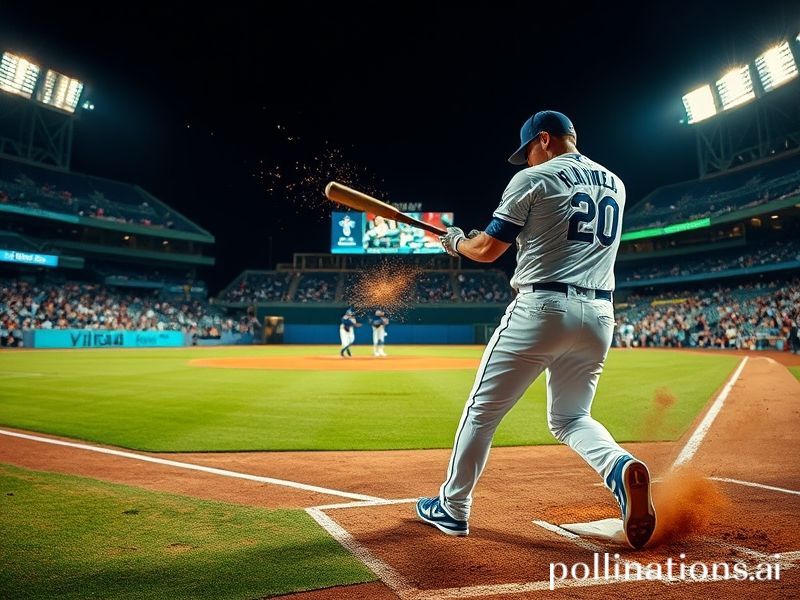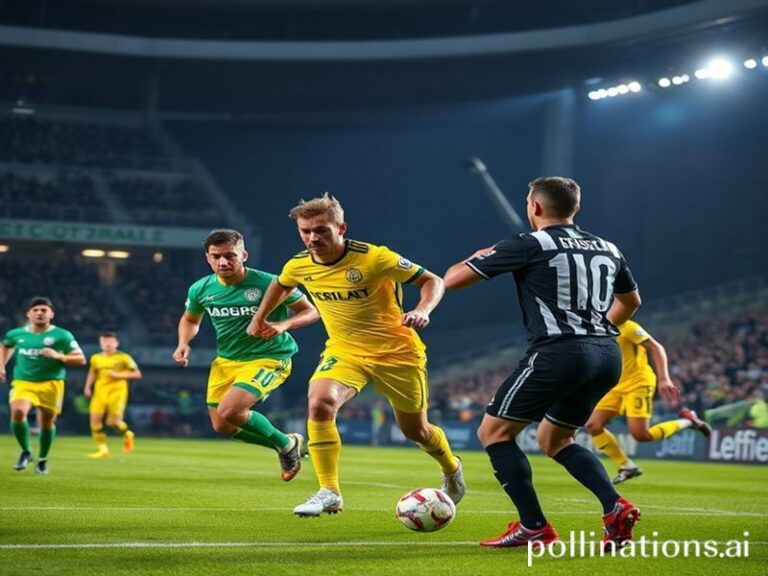Dodgers vs Mariners: How a Meaningless Spring Game Became the World’s Favorite Insomnia Cure
Dodgers vs Mariners: When the Pacific Becomes a Gladiator’s Moat
By Our Bureau Chief for Existential Ballpark Studies, Tokyo
The first pitch is still sixteen hours away, but the international dateline has already declared a winner: insomnia. From Manila to Madrid, insomniacs stream illegal feeds of an otherwise meaningless spring-training tilt because, well, the planet is on fire and at least Clayton Kershaw’s curveball still bends like the arc of human decline. Welcome to Dodgers versus Mariners, a contest that proves baseball’s greatest export is no longer the sport itself but the comforting illusion that somebody, somewhere, still has control.
Let’s zoom out. Los Angeles, city of 4.0 million undocumented screenplays, dispatches its blue-clad mercenaries north to face Seattle, the cloud-covered capital of overpriced lattes and underpriced human potential. Between them stretches the Pacific, which, depending on which diplomat you ask, is either a geopolitical chessboard or the world’s largest floating garbage patch. Conveniently, it’s also the same body of water China’s navy and Japan’s whalers treat as a timeshare, making any foul ball that plops into McCovey Cove a minor act of maritime diplomacy.
The Dodgers arrive freighted with more baggage than LAX at Christmas. They are, after all, the franchise owned by an investment consortium whose members could collectively bail out a mid-sized European nation but prefer to haggle over luxury-tax thresholds. Mookie Betts alone makes more per plate appearance than the average Sri Lankan earns in a decade; each time he spits, the IMF recalculates inflation. Meanwhile, Julio Urías—poster child for MLB’s “¡Sí se puede!” marketing push—pitches under a cloud of unresolved legal paperwork, reminding us that due process, like a hanging curve, can always be hit out of the park.
Across the diamond, the Mariners cling to relevance like barnacles to a rusting oil tanker. Their last playoff appearance was so long ago that TikTok was still a Kesha song. Yet Seattle exports hope the way it once exported grunge: loudly, bleakly, and ultimately destined for the clearance bin. Enter Julio Rodríguez, the Dominican wunderkind whose smile could power a small island nation if only the island had better cable packages. When he swings, entire WhatsApp networks from Santo Domingo to Vancouver buzz with the same question: will this be the year the Mariners stop being baseball’s Switzerland—neutral, pretty, and entirely forgettable?
Globally, the game functions as a Rorschach test. In Seoul, where KBO fans deride MLB pace of play as “anarchically brisk,” the broadcast is background noise for late-night cram sessions. In London, insomniacs watch to remind themselves that at least their footballers fake injuries more convincingly. And in Caracas, where rolling blackouts slice innings into surreal jump cuts, the score is less important than proof that electricity can still be stolen.
Then come the geopolitics. Every Shohei Ohtani highlight reel triggers a fresh round of Japanese cabinet meetings: should we raise consumption tax or just let SoftBank buy another team? Meanwhile, Canadian viewers wonder why Rogers Communications can beam this nonsense into Moose Jaw but can’t keep the Blue Jays competitive—an existential crisis politely filed next to universal healthcare. And in Beijing, state censors debate whether to allow the feed; the risk isn’t subversion, it’s that citizens might notice Dodger Stadium’s parking lot is larger than three Tier-3 cities.
As the ninth inning crawls toward 4 a.m. GMT, the score remains stubbornly unimportant. What matters is the meta-narrative: two coastal elites swinging at stitched leather while the oceans rise to meet them. If the Dodgers win, portfolio managers in Singapore update their ESG reports. If the Mariners win, baristas in Reykjavik toast with oat-milk lattes, blissfully unaware that Iceland’s entire GDP could fit inside the Dodgers’ bullpen budget.
Eventually, someone grounds out to short. Fireworks bloom over Peoria, Arizona—pyrotechnics built with rare earth minerals mined by hands that will never afford a ticket. The crowd disperses, Uber surge-pricing kicks in, and the planet rotates another degree toward irreversible heat death. But tomorrow, somewhere in Lagos or Lahore, another bleary-eyed fan will click “Watch Replay,” chasing the same fleeting narcotic: the belief that nine innings can still make the chaos legible.
Play ball, world. Just don’t look too closely at the box score; the numbers are in freefall, and they’re taking the rest of us with them.







